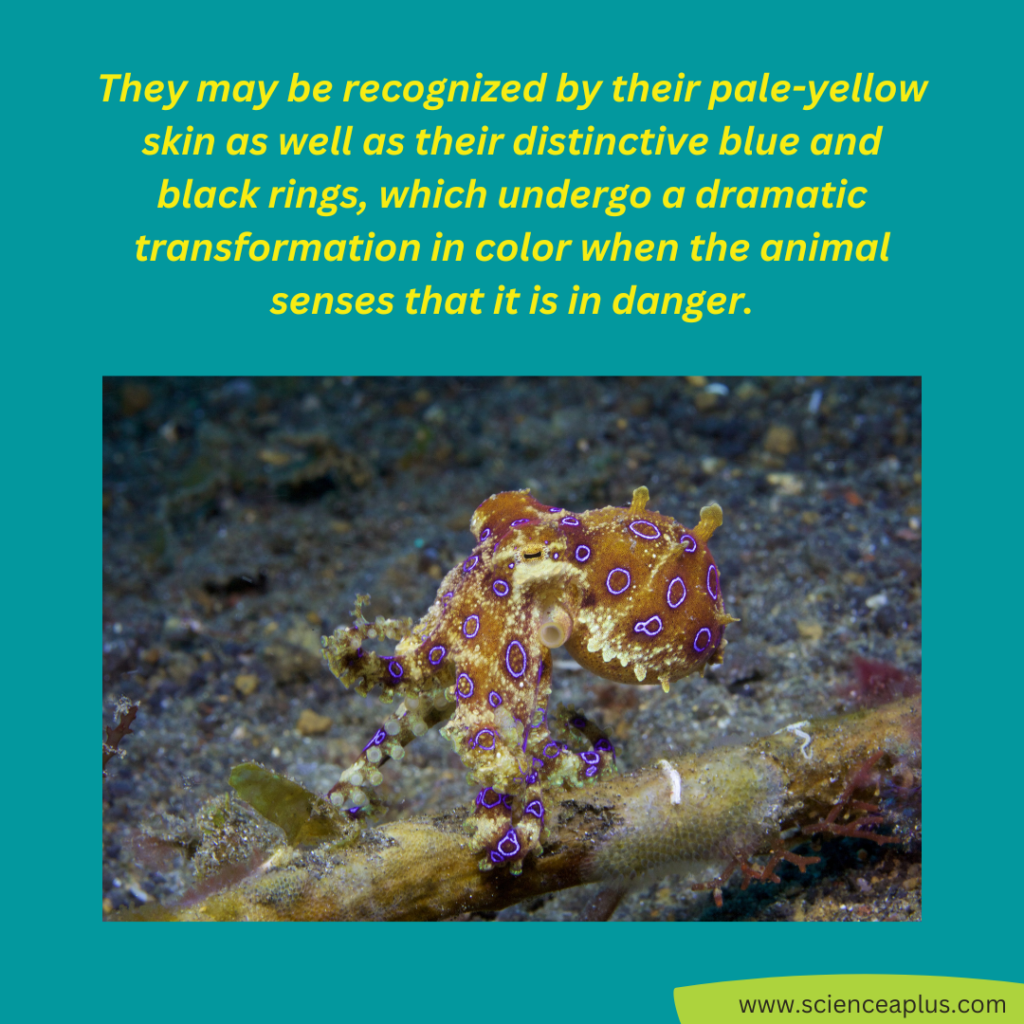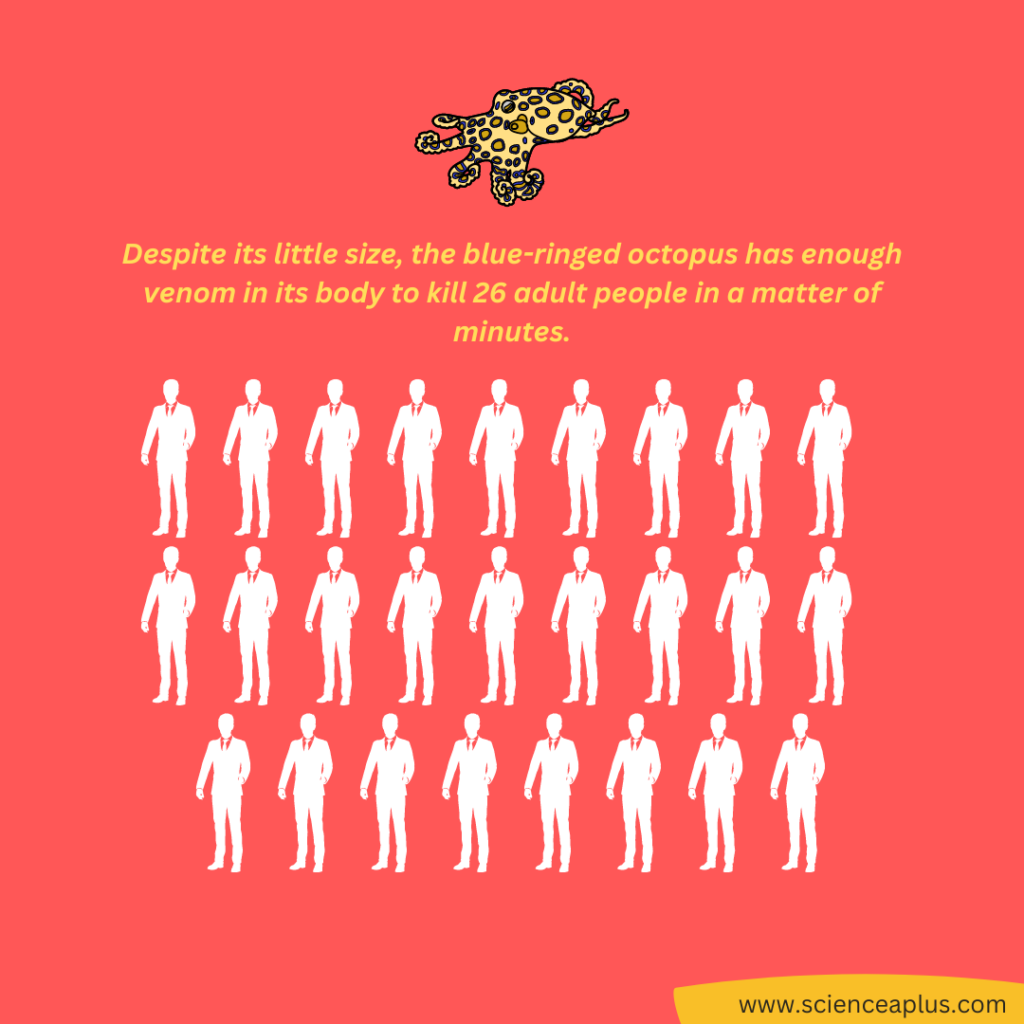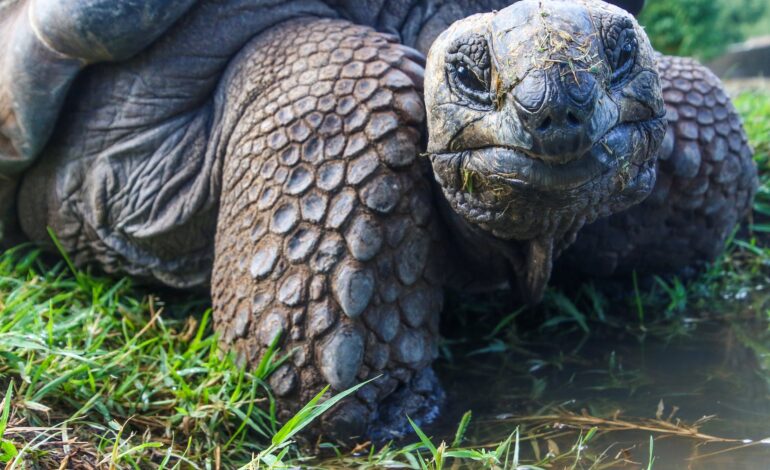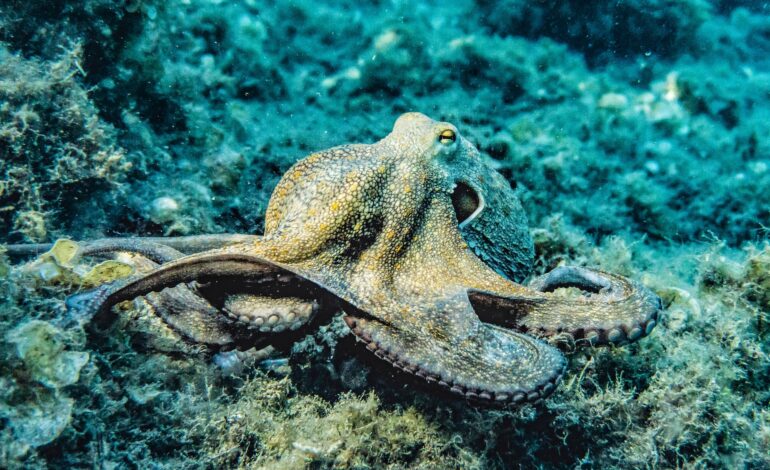The blue-ringed octopus is one of four very poisonous species of octopus that belong to the genus Hapalochlaena. These octopuses may be found in coral reefs and tidal pools in the Pacific and Indian seas, ranging from Japan to Australia.
Body of blue ringed octopus
They may be recognized by their pale-yellow skin as well as their distinctive blue and black rings, which undergo a dramatic transformation in color when the animal senses that it is in danger.
What do blue ringed octopus eat?
They consume a variety of tiny creatures, such as crustaceans, hermit crabs, prawns, and other invertebrates found in the ocean.
They are among the most deadly marine creatures found anywhere in the planet.
How long blue ringed octopus lives?
In general, the lifetime of the species is between between two and three years.
Is it deadly to handle blue ringed octopus?
Due to the presence of the potent neurotoxin tetrodotoxin in their venom, they pose a significant threat to human beings if they are agitated while being handled.
Despite its little size, the blue-ringed octopus has enough venom in its body to kill 26 adult people in a matter of minutes.
Natural habitat of blue ringed octopus
They are able to easily alter form, which allows them to fit into gaps that are considerably smaller than themselves. This ability is shared by all octopuses. This, in addition to the rock pile that was placed at the entrance to its burrow, serves to protect the octopus from being eaten by other animals.
What happens if get bitten by a blue ringed octopus?
(If you are in danger, call for medical help immediately)
Due to the fact that their bites are so minute and, in most cases, painless, victims frequently are unaware that they have been bitten until the onset of respiratory depression and paralysis. [10] There is currently no antivenom available for blue-ringed octopus.
Victims of tetrodotoxin envenomation may be completely aware of their surroundings yet be unable to move as a result of the toxin’s effects. The nerve poison is produced by blue ringed octopuses and is found in their saliva. Their bite is often painless, but the victim may feel numb around the lips, tongue, face, and neck.
If the individual is not resuscitated, they will eventually develop respiratory failure, which will result in their death. The majority of the time, the victim is conscious, but they are unable to move or respond to the situation.
IUCN status of blue ringed octopus
Least concern
Coral reefs and seagrasses are the living environment of these tiny creatures. Sea water pollution and climate change has a dramatic effect on the living environment of most marine creatures. Damage to the ecosystems in turn leads to endangering of this species.




